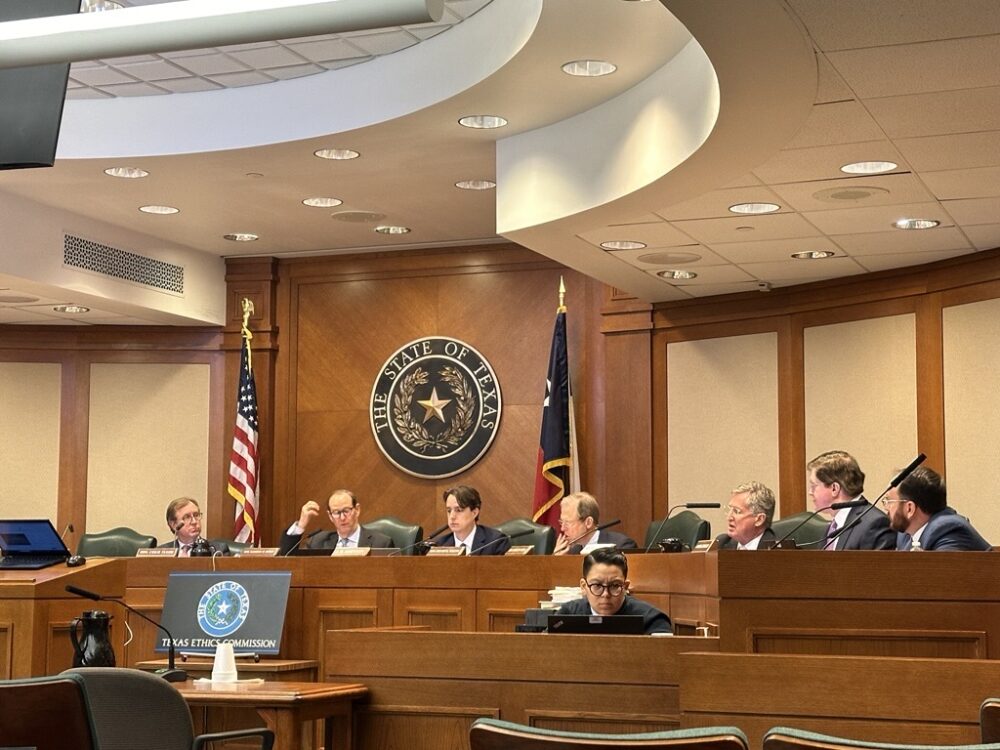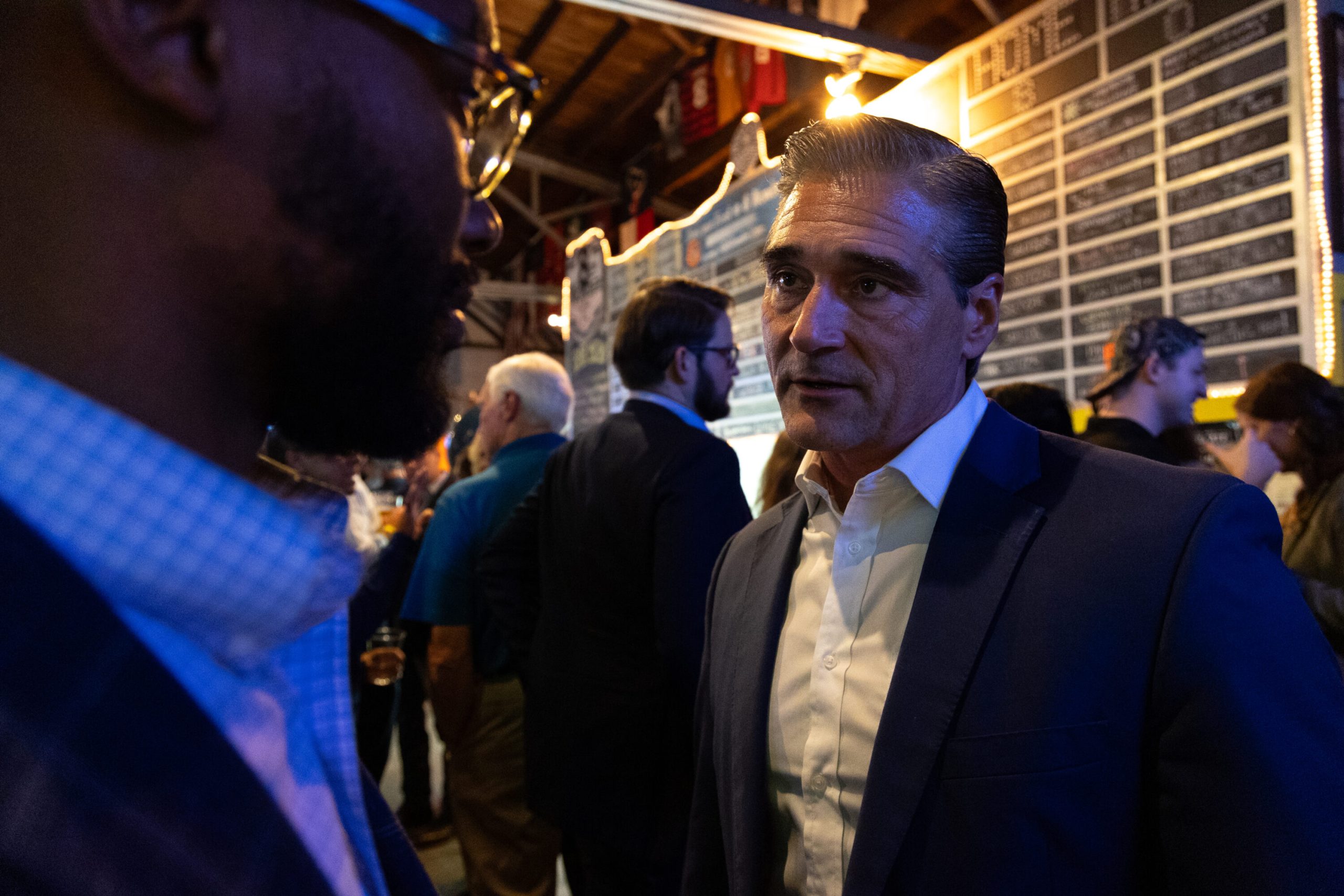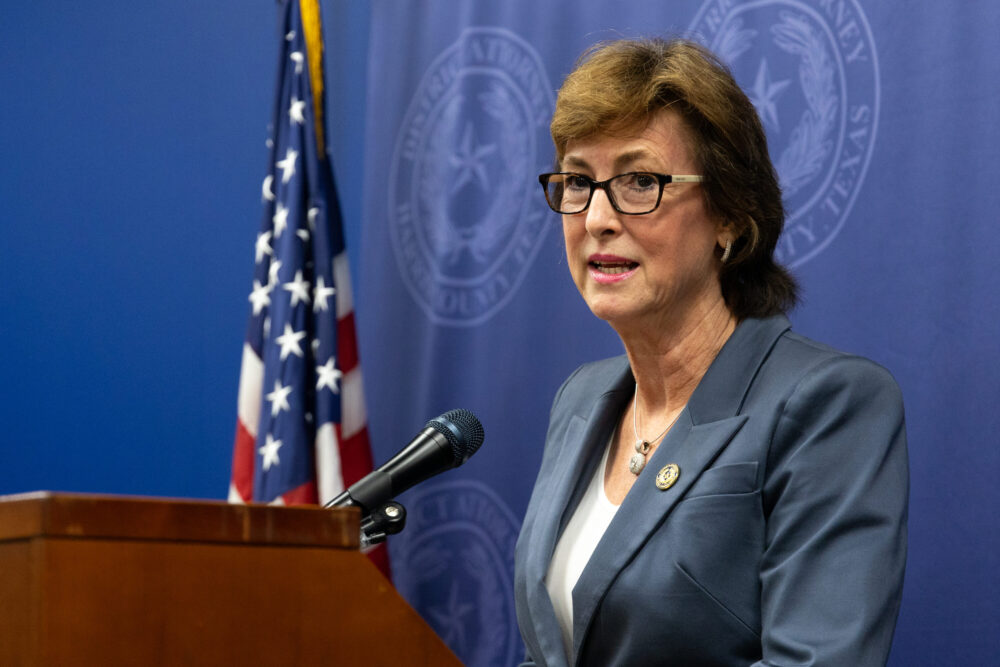Listen
Please use this code to incorporate this audio clip into your website:
In Brenham, a town famous for its Blue Bell ice cream, just northwest of Houston, a lawmaker was charged with unethical behavior.
Robbie Gail Charette, a candidate for a Washington County court seat, was charged by prosecutors with making mistakes in financial documents and campaign advertisements. Lewis Thomas, her lawyer, countered that the Texas Ethics Commission ought to have examined her case initially.
“Ms. Charette’s due process is being violated. Thomas stated during oral arguments before the Texas Court of Criminal Appeals that she was not given the notice or the chance to settle these allegations administratively before being indicted.
The highest criminal court in Texas concurred and dismissed her case in September, possibly establishing a precedent that the commission alone has the power to enforce specific rules pertaining to lobbying, political advertising, and campaign money.
In actuality, this implies that, at least for the time being, prosecutors must consult the commission before bringing charges in these circumstances. An appeal court is scheduled to rehear the Charette case.
Proponents claim that the current ruling will stop rogue district attorneys from acting in certain ways. However, some contend that the decision compromises election integrity by making it more challenging for prosecutors to pursue dishonest lobbyists and politicians.
David Kwok, an associate professor at the University of Houston Law Center, stated that this “reduces the power of criminal prosecutors from a time perspective.”However, we might anticipate that the TEC would be prompt about their procedure if these are truly major problems.
The ethics commission established an emergency rule permitting commissioners to evade thorough reviews of ethical allegations shortly after the Charette judgment was released. Rather, they can make a decision on whether to permit prosecution very fast.
“I think it s pretty seamless, and that s the reason we did the rule to keep it very efficient where there s no delay and no impediment to any lawful prosecution,” Randall Erben, the chair of the commission, said.
The Texas Ethics Commission’s executive director, J.R. Johnson, stated that commissioners are able to handle complaints promptly and do not anticipate the decision having a major effect on their workload.
“We are confident that we will not be an undue impediment to the enforcement of criminal violations of these ethics laws,” he stated.
The consequences in Fort Bend County
At least one criminal case has already made use of the Charette ruling.
Judge KP George of Fort Bend County was charged in September with collaborating with a staffer to fabricate racist attacks against his own campaign.
However, Fort Bend County District Attorney Brian Middleton delayed indicting George until the day the statute of limitations was about to expire in order to await the ethics commission’s response, fearing that the Charette rule would apply in this case.
This is how the decision can tie district attorneys’ hands, Middleton said.
“When we re working on short timelines, it s important that we have what’s guaranteed by the Texas Constitution, which is the full discretion with criminal prosecution,” he stated.
George was charged with a crime by prosecutors after the district attorney’s office failed to receive a timely response from the ethics commission.
They eventually re-indicted George after receiving a referral from the ethics committee.
Chad Dick, his lawyer, contended that the lawsuit ought to be dismissed because George’s rights to due process had been infringed.
Prosecutors were supported by a district court judge. The case is currently being brought to the Fourteenth Court of Appeals by George and his lawyer.
According to Dick, the Charette ruling upholds the accused’s rights. And he noted that in an election, ethics allegations can be a “political cudgel” to defeat an opponent.
In an interview with Houston Public Media, he stated, “To be quite honest, I think it’s a good thing that the Texas Ethics Commission looks through everything first and then determines whether or not a criminal referral should be sent.”
The effects might be extensive.
Attorney Andrew Cates, who has represented clients before the ethics commission, stated that he has heard conflicting views from his peers.
“It seems kind of split, honestly, between those that are really worried about it and those that are basically (saying), It doesn t matter,'” he stated.
However, he stated that if the case serves as a foundation for future decisions that give state agencies additional authority, the effects could be extensive.
“It could be expanded to all state agency enforcement matters, not just the ethics commission,” Cates stated.
In an opinion piece last year, Jackie Doyer, the legal policy director of the right-leaning advocacy group and think tank Honest Elections Project, called for changes to lessen the impact of the decision.
She added that the Charette verdict denies prosecutors the jurisdiction to investigate crimes, which requires specialized knowledge.
“You have a lack of expertise that s going to be impacting what happens with those cases,” she stated.
The Charette verdict was among the issues raised in a resolution passed by the Texas Republican Party in December that criticized the Texas Ethics Commission for overreaching.
Legislation from state legislators could step in and make it clear that the commission is not the only body with jurisdiction over ethics law infractions.
Republican state senator from Houston, Paul Bettencourt, stated that he started investigating the Charette view after Houston Public Media alerted him to it.
To lessen the impact of the decision, his staff is beginning to draft a law.
“It s not really contemplated that every criminal investigation in Texas somehow goes through that body in Austin,” he stated. “That would be incredibly cumbersome and unwieldy.”
Reexamine the case
Stacey Soule, the state prosecutor, submitted a motion to rehear the Charette case. In January, that motion was approved.
In a statement in response to written inquiries from Houston Public Media, she stated, “This decision grants wrongdoers a temporary King’s X, potentially leading to the public unknowingly electing candidates who have violated election laws.”
“Such delays in prosecuting Title 15 Election Code offenses create opportunities for corruption and jeopardize the integrity of free and fair elections,” Soule stated.
Three newly elected justices will consider the Charette case when it is reheard. They were chosen in November.
In the primary last year, Texas Attorney General Ken Paxton supported these new justices.
He attempted to remove Republican judges who had denied him the right to prosecute election crimes without the consent of local district attorneys after they had ruled against him in another case.
The three judges take the place of Presiding Judge Sharon Keller, who wrote the dissent in the Charette case, Judge Michelle Slaughter, who wrote the Charette ruling, and Judge Barbara Hervey, who joined her.
The new judges’ decisions and the potential application of the Charette opinion are still up in the air, according to ethics law lawyer Cates.
His words were, “We’ll have to wait and see,” “I think a lot of it s going to play out in court over time.”



